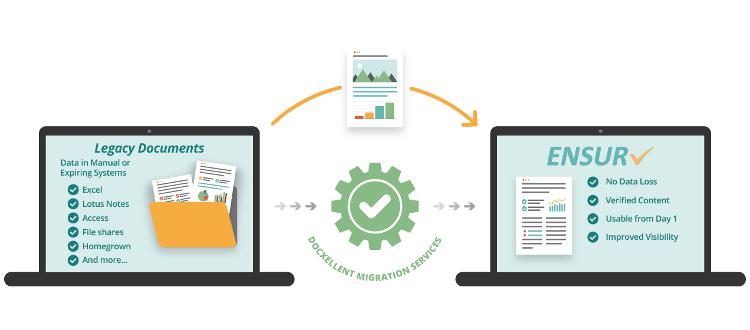
What is Traceability and Why is it Important?
In the manufacturing industry traceability is defined as the process of recording necessary information which is then tracked in all business process from obtaining raw materials and parts to machining, assembly, distribution, and sales. It is used to ensure that a product’s exact history can be tracked if the need ever arises. So why is traceability important in the manufacturing industry? If any type of quality problem occurs during or after the manufacturing process it is the manufacturer’s responsibility to take effective measures as quickly as possible. If there is a slow response time or if your solution is ineffective you will create a sense of distrust among your customers and partners, which could endanger the entire existence of your company.
Traceability is widely utilized for minimizing damages, improving management challenges, preventing serious recall problems, and keeping up with industry compliance. And as laws to protect the consumer have become more and more strict, and government regulations continue to evolve, the ability to quickly recall and solve production issues has become imperative. Fortunately, a quality management system can improve traceability and streamline the supply chain for manufacturing companies. Read on to learn how.
How a Quality Management System Improves Traceability
Track Products Through the Supply Chain
Using a quality management system allows your company to easily track a product’s entire lifecycle. Traceability involves identification tagging of each manufactured product with its individual data. As raw materials are used during production, a QMS allows for product information and time records to be collected and attached to each product’s operation records. Even further, you have the option to attach environmental conditions, test results, operator information, and equipment information to each part or product.
A QMS also provides the ability to manage and collaborate with your suppliers. You can manage your supplier list in the same place you manage the various documents that you receive and send to them, ensuring that they are always using the correct version. The ability to consolidate all of your supplier interactions into one, central system will not only reduce time to market, but also reduce risks associated with future regulatory issues.
Once a product is finished, your company will have the ability to track that merchandise’s movement through the supply chain – allowing you to see exactly where improvements to your processes can be made. Having all of this information available allows your company to be transparent with your customers and supply chain and ensures that your internal processes are as efficient as possible. If a recall on one of your products were to occur, a QMS will provide your company the tools to effectively investigate and perform root cause analysis, facilitating faster resolution times and minimizing the impact on your customers and your business.
Maintain Compliance with Manufacturing Regulations and Standards
Another large part of traceability is ensuring that your company remains compliant and up to date on industry standards. Those in the manufacturing industry are tasked with meeting a wide variety of compliance requirements. In addition to customer expectations, manufacturers have to manage REACH, RoHs, ISO, UL and other governing bodies, most of which require a detailed traceability process to ensure that your company is running up to code. And attempting to navigate these regulations manually involves a lot of work, time, and hard-copy documentation.
Instead of keeping track of your traceability and compliance through paperwork, a quality management system can automate these processes. DocXellent’s QMS, ENSUR, includes the tools necessary to provide the visibility you need to quickly find, track and report critical information related to a product’s location, production status, and supplier source. Specific capabilities include:
- Forward and backward lot tracing, including the ability to link lot numbers with ingredients
- Searching for specifications by title, document number, created by, effective date and other metadata
- Easy inclusion into BOMs to manage related documents together
- Full audit capability for knowledge of who did what when to every document
- Historic and archive status for documents that have been revised and recall of legacy content
If your manufacturing company is looking to improve its traceability to avoid recall disasters and remain compliant, a QMS is essential. To learn more about DocXellent’s Quality Management Software, contact us today.




























